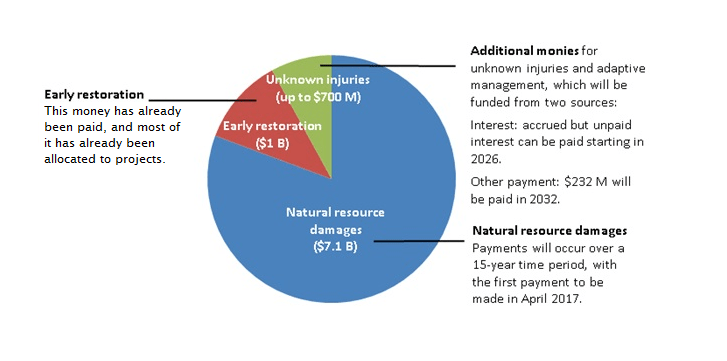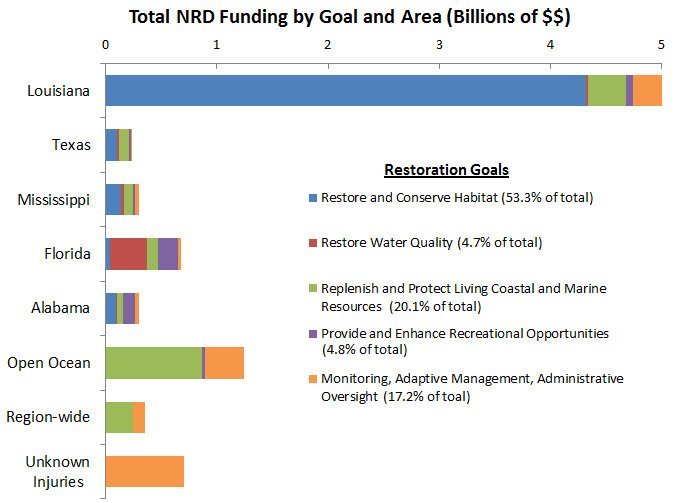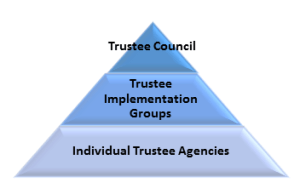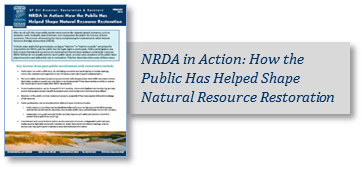When an oil spill occurs, natural resources like fish, birds, and marshes may be injured. A natural resource damage assessment (or “NRDA”) is a process focused on figuring out what those injuries are, coming up with a plan to fix those injuries, and then fixing them. This includes compensating the public for not being able to use the resources while they are injured (e.g. no recreational fishing or beach access). The NRDA process here is being managed by a group of federal and state representatives called “trustees.”
How much money is involved?
BP will pay up to $8.8 billion in natural resource damages. This includes:

How will the money be spent?
The trustees have allocated the natural resource damages among five different restoration goals (which are further divided into restoration types), across eight different restoration areas.

The bulk of the funding has been allocated to the “Restore and Conserve Habitat” goal, with most of that money going to projects in Louisiana.
You can find more details about the restoration projects in our Restoration Projects Database.
Trustee Implementation Groups (TIGs)
The settlement with BP created a new governance structure for the trustees, dividing responsibilities among three main groups:

Each of these groups has different responsibilities, but most of the decisions regarding restoration will be made by the trustee implementation groups (TIGs). There is one TIG for each restoration area.
For more information on the seven currently active TIGs, please see:
How can I participate?
There are both informal and formal opportunities for the public to participate. Some opportunities include:
Suggest ideas for restoration projects (e.g. using the trustees’ project submission portal);
Comment on draft restoration plans;
Provide feedback and suggestions at meetings hosted by the trustees.
————————————————————————————————————————————————————————
For more details about the NRDA process and public involvement:
